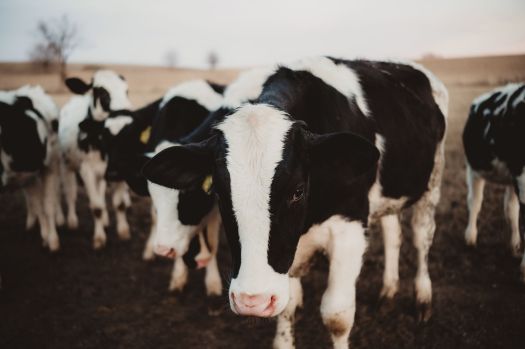To better monitor the H5N1 bird flu that has been circulating in dairy cattle since March, the US Department of Agriculture will start testing raw milk from dairy silos around the country.
On Friday, the government issued a new federal directive announcing the extended testing of the milk supply.
Since the start of the outbreak, experts in infectious diseases have advocated for more testing, claiming that the virus cannot be stopped until federal regulators, veterinarians, and farms are aware of its spread. At first, dairy farmers had opposed requests for more extensive testing because they were worried about losing money if their herds were placed in quarantine.
Among other things, this will help farmers and farmworkers feel more secure about the safety of their animals and their own self-defense, and it will set us up for swiftly containing and halting the virus’s spread across the country, Agriculture Secretary Tom Vilsack stated in a press release.
According to the new directive, dairy farms, bulk milk shippers, milk transfer stations, or dairy processing facilities that send or keep milk for pasteurization must share raw milk samples upon request.
Additionally, it mandates that herd owners who have cattle that test positive for bird flu submit data that allows for disease surveillance and contact tracing.
Finally, it mandates that labs and veterinarians notify USDA of any positive H5N1 test results.
Although some states have already begun testing that meets these requirements, the USDA stated that the first round of testing is set to commence the week of December 16.
The initial testing phase will involve six states: California, Colorado, Michigan, Mississippi, Oregon, and Pennsylvania. Mississippi, Oregon, and Pennsylvania have not reported any issues, although it is known that herds in California, Colorado, and Michigan were affected. Authorities in those states will be better able to determine whether bird flu poses a hazard in regions where the sickness has not yet been identified thanks to the milk testing.
Bulk tanks are already used for milk testing by the California Department of Food and Agriculture.
The new National Milk Testing Strategy was initially unveiled by USDA in October. It has never before made the specifics of its plans public until Friday’s ruling.
The milk is being tested prior to pasteurization, which destroys dangerous bacteria and viruses by gradually heating milk to a certain temperature. According to the US Food and Drug Administration, the current pasteurization procedure will render the virus inactive even if it is found in raw milk.
Pasteurized milk makes up the majority of milk marketed in the US.
Raw milk should not be consumed or given to animals, according to health regulators. Raw milk is not pasteurized and can can carry disease-causing pathogens such as listeria, campylobacter, salmonella, E. coli and bird flu virus.
In California,Raw Farm milk and cream was recalledand product distribution was suspended after bird flu virus was detected recently in samples from store shelves, dairy storage and bottling sites. No illnesses have been linked to the milk.
Note: Every piece of content is rigorously reviewed by our team of experienced writers and editors to ensure its accuracy. Our writers use credible sources and adhere to strict fact-checking protocols to verify all claims and data before publication. If an error is identified, we promptly correct it and strive for transparency in all updates, feel free to reach out to us via email. We appreciate your trust and support!




